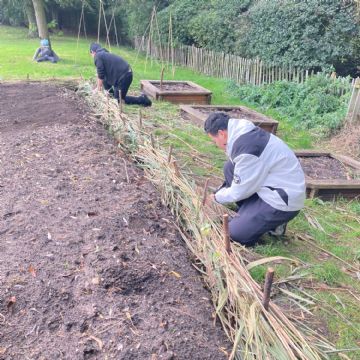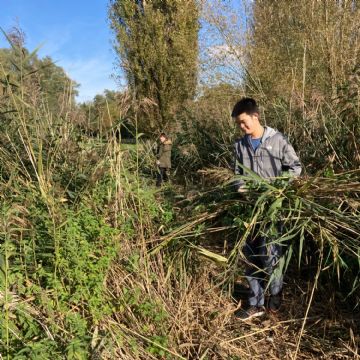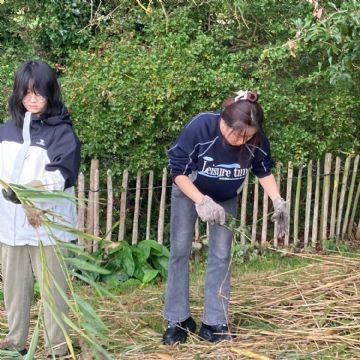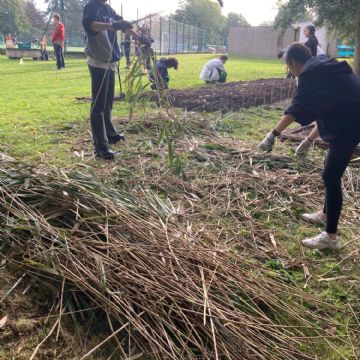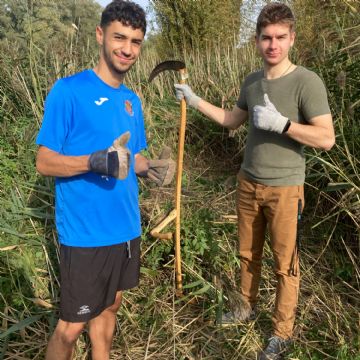
Nature Reserve Eco-Enrichment
Published on 09/02/24

Students have been working on our school allotment and nature reserve (they renamed the sessions Potato Club). The aim is to manage the nature reserve using traditional skills and also use the allotment to grow heritage vegetables for a local food bank.
Two of the students decided to sum up their initial experience of integrating nature reserve and allotment management at Stephen Perse Cambridge.
Year 12 student Orla B said: “Braving the rain and wind every Tuesday the students in eco enrichment do our small part to help the environment. Our aim is to improve the nature reserve (one of the few remaining reed beds in Cambridge) and to manage a garden using traditional sustainable methods. Recently, we have been cutting reeds to create a woven fence around our central vegetable patch (in order to ward off deer and small children). This is in preparation for when we start to grow some vegetables as well as helping manage reeds from the wetland. We want to clear reeds in order to recreate a water meadow which will transform the area into an even more useful and effective habitat. ‘It gets you outside and hands on’ and ‘we need to protect nature’ are some of the reasons why students enjoy eco enrichment. For me I love doing practical work and learning new skills (such as using a mallet and saw) whilst at the same time helping conserve a key part of the environment. In the coming weeks we look forward to building compost heaps, constructing a potato tower (a log cabin to grow potatoes) and to continue to manage the reed beds.”
Year 12 student Cici L said: “As part of this gardening project we are developing our team working, perseverance and problem solving skills. We are also learning practical skills that can be useful for our future. For example, cutting reeds from the nature reserve and making them into biodegradable fences, creating Hugelkultur type beds with layers of wood, leaves and compost so we can have good soil to grow vegetables next year. Now we’re preparing to make new compost heaps and starting to sort seeds for next year's crops.”
